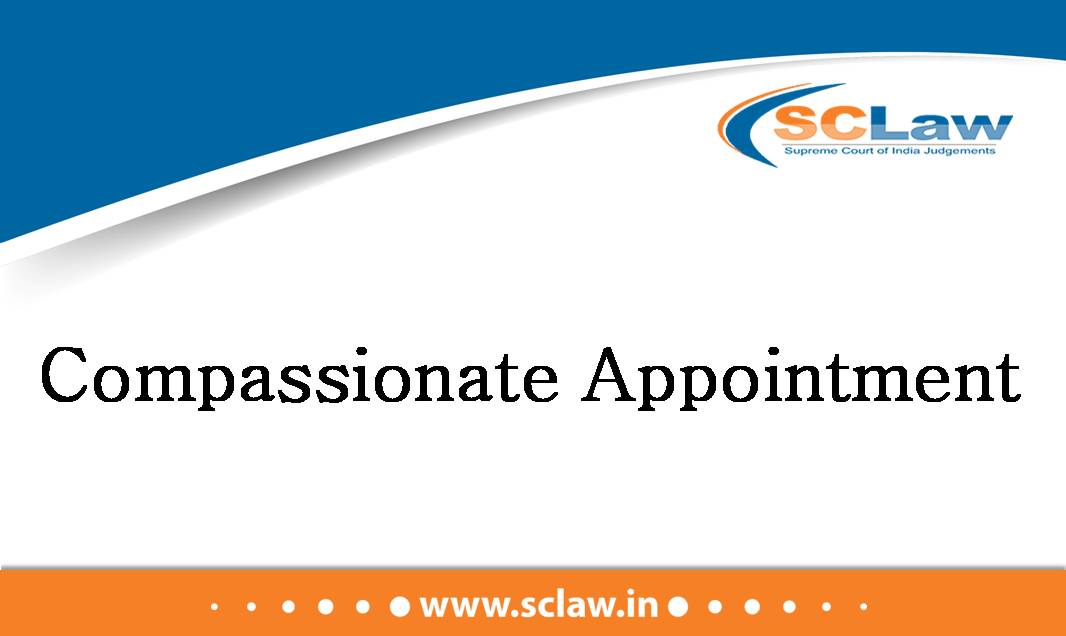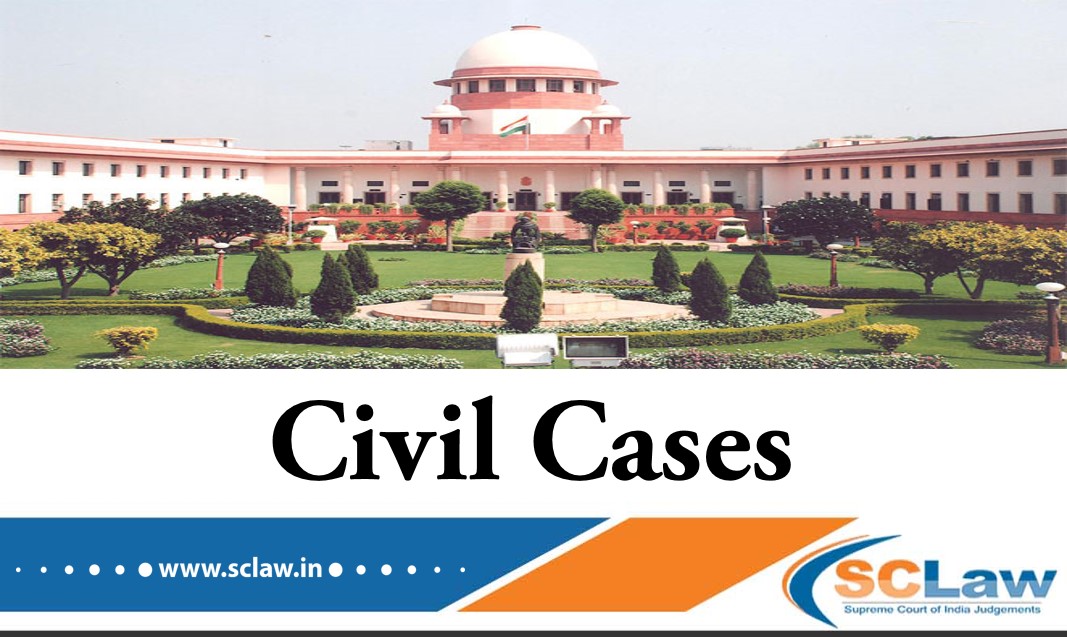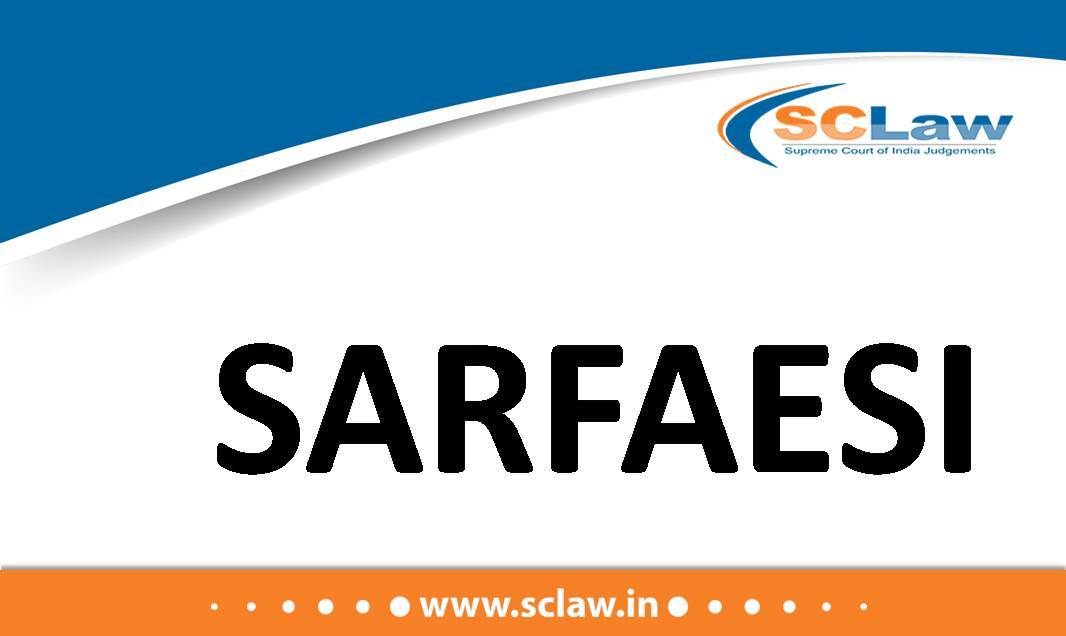Appointment on compassionate grounds is not automatic, but subject to strict scrutiny of various parameters including the financial position of the family, the economic dependence of the family upon the deceased employee and the avocation of the other members of the family – Therefore, no one can claim to have a vested right for appointment on compassionate grounds – Application of the respondent for compassionate appointment shall stand dismissed.
SUPREME COURT OF INDIA DIVISION BENCH THE SECRETARY TO GOVT. DEPARTMENT OF EDUCATION (PRIMARY) AND OTHERS — Appellant Vs. BHEEMESH ALIAS BHEEMAPPA — Respondent ( Before : Hemant Gupta and…
Repayment of Borrowed Amount – A party who admits receipt of certain amount of money on a particular date and pleads discharge by way of a full and final settlement at a latter date, is the one on whom the onus lies -In a suit for recovery of money, a defendant admitting the receipt of money but pleading that the same was a gratuitous payment, is obliged to prove that it was a gratuitous payment – Respondents miserably failed to discharge the onus of proof so cast upon them. Hence, the plaintiff-appellant is entitled to a decree
SUPREME COURT OF INDIA DIVISION BENCH ANITA RANI V. ASHOK KUMAR AND OTHERS — Appellant Vs. ANITA RANI — Respondent ( Before : Hemant Gupta and V. Ramasubramanian, JJ. )…
Land Acquisition Act, 1894 – Section 48(1) – Acquisition – Housing and development – Release of land – A notification under Section 48(1) does not warrant any notice or opportunity of hearing, to the original land owners – If at all any person will be aggrieved by the Notification under Section 48(1), it will be the beneficiary of the acquisition, which in this case is the Parishad, and not the land owners – Therefore, This Court can understand if the Parishad makes out a grievance that their rights were taken away by the notification under Section 48(1)
SUPREME COURT OF INDIA DIVISION BENCH U.P. AVAS EVAM VIKAS PARISHAD THROUGH HOUSING COMMISSIONER AND ANOTHER — Appellant Vs. NOOR MOHAMMAD AND OTHERS — Respondent ( Before : Hemant Gupta…
Respondents have taken up wholly untenable ground that the documents were signed under duress – Large number of documents such as invoices, debit notes and ST-1 Form spread over 3 months is unbelievable to be an exercise of duress – Stand of the respondents is wholly untenable and unjustifiable in law and is only to defeat the legitimate claim raised by the appellant – Appeal allowed.
SUPREME COURT OF INDIA DIVISION BENCH M/S STAR PAPER MILLS LIMITED — Appellant Vs. M/S BEHARILAL MADANLAL JAIPURIA LIMITED AND OTHERS — Respondent ( Before : Hemant Gupta and V.…
Constitution of India, 1950 – Article 226 – Securitization and Reconstruction of Financial Assets and Enforcement of Security Interest Act, 2002 – Non-Performing Asset – Recovery of loan by auction of mortgaged property – Appeal against order of high court granting benefit under the One Time Settlement (OTS) Scheme – No writ of mandamus can be issued by the High Court in exercise of powers under Article 226 of the Constitution of India, directing a financial institution/bank to positively grant the benefit of One Time Settlement (OTS) Scheme to a borrower
SUPREME COURT OF INDIA DIVISION BENCH THE BIJNOR URBAN COOPERATIVE BANK LIMITED, BIJNOR AND OTHERS — Appellant Vs. MEENAL AGARWAL AND OTHERS — Respondent ( Before : M.R. Shah and…
Arbitration and Conciliation Act, 1996 – Section 34 – Setting aside of arbitral award – At the same time when an order is passed without recourse to arbitration and in utter disregard to the provisions of Arbitration and Conciliation Act, 1996, Section 34 of the Act will not apply.
SUPREME COURT OF INDIA DIVISION BENCH JHARKHAND URJA VIKAS NIGAM LIMITED — Appellant Vs. THE STATE OF RAJASTHAN AND OTHERS — Respondent ( Before : Indira Banerjee and R. Subhash…
Constitution of India, 1950 – Article 129 – Contempt of Courts Act, 1971 – Contempt jurisdiction is always discretionary which should be exercised sparingly and with circumspection – This is not a fit case to exercise the said jurisdiction by punishing the respondents – However, it is always open for the petitioner to adopt appropriate proceedings for recovery of money as mentioned in the report in accordance with law – Contempt petitions disposed of in terms.
SUPREME COURT OF INDIA DIVISION BENCH THE BORDEURI SAMAJ OF SRI SRI MAA KAMAKHYA — Appellant Vs. RIJU PRASAD SARMA AND OTHERS — Respondent ( Before : Ajay Rastogi and…
(IPC) – Sections 302 and 34 – Arms Act, 1878 – Sections 25 and 4 – Murder – Death penalty – Acquittal – Prosecution has failed to prove the case beyond reasonable doubt –A greater degree of care and caution would be required and a corroboration in material particulars by reliable testimony, direct or circumstantial, would be necessary to pass an order of conviction – Criminal trial is not like a fairy tale wherein one is free to give flight to one’s imagination and phantasy – Conviction and death sentence imposed on the accused is totally unsustainable in law – Accused persons acquitted.
SUPREME COURT OF INDIA FULL BENCH JAIKAM KHAN — Appellant Vs. THE STATE OF UTTAR PRADESH — Respondent ( Before : L. Nageswara Rao, B.R. Gavai and B.V. Nagarathna, JJ.…
Consumer Protection Act, 1986 – Section 13(2) – Consumer Complaint – Limitation period – While entertaining Consumer Complaint, the NCDRC has condoned the delay of 100 days in filing a written statement – Appeal against – No case for interference is made in the order of the NCDRC allowing the application for condonation of delay on merits.
SUPREME COURT OF INDIA FULL BENCH DIAMOND EXPORTS AND ANOTHER — Appellant Vs. UNITED INDIA INSURANCE COMPANY LIMITED AND OTHER — Respondent ( Before : Dr. Dhananjaya Y. Chandrachud, Surya…
Insolvency and Bankruptcy Code, 2016 – Sections 7 – Insolvency Resolution – A requirement only needs to be assessed at the threshold while admitting the petition. Hence, if subsequent to the admission, withdrawal applications are preferred and the 10 per cent threshold is reduced, it shall not affect the maintainability of the original petition.
SUPREME COURT OF INDIA DIVISION BENCH E S KRISHNAMURTHY AND OTHERS — Appellant Vs. M/S BHARATH HI TECH BUILDERS PRIVATE LIMITED — Respondent ( Before : Dr. Dhananjaya Y. Chandrachud…














